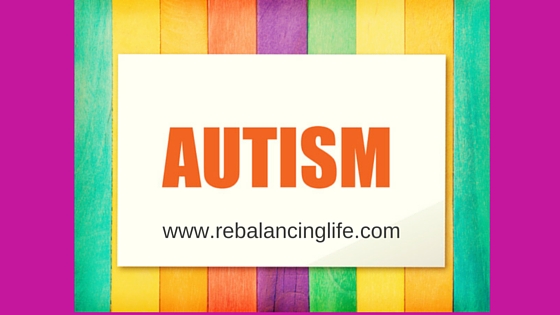Did you know that there are over 700,000 children diagnosed across the autistic spectrum that will enter adulthood over the next 10 years?
Back in the 1940s an American child psychiatrist by the name of Leo Kanner published a paper describing 11 children who were highly intelligent but displayed a “powerful desire for aloneness” and “an obsessive insistence on persistent sameness”.
The term has been redefined over the decades and in recent years we have seen a dramatic increase in the number of children diagnosed as being on the autistic spectrum.
I recently spoke to Lynne Stainthorpe who runs Big Idea Brand Marketing Ltd about some of her experiences in raising her 19-year-old son Matthew who was diagnosed as being on the autistic spectrum.
When did you first hear of Matthew’s diagnosis?
Lynne: Matthew was diagnosed between 2-3 years of age. He  had stopped talking, which was initially attributed to glue ear. When he still did not speak after having gromits fitted, he was referred to a paediatrician. The autism diagnosis followed and it created mixed feelings – relief that we knew what the problem was, combined with bewilderment, ignorance and fearfulness about his future.
had stopped talking, which was initially attributed to glue ear. When he still did not speak after having gromits fitted, he was referred to a paediatrician. The autism diagnosis followed and it created mixed feelings – relief that we knew what the problem was, combined with bewilderment, ignorance and fearfulness about his future.
We read what we could about autism and applied for help with his education. This was a confusing time. We had no idea how to help Matthew. Eventually he got a statement which confirmed that he had been diagnosed with autism. Even then, it was a fight to get the appropriate help he needed.
I will always be grateful to the professionals who identified techniques to improve his communication.
Is routine important to Matthew?
You could set your clock by Matthew! He gets up, has lunch, showers and goes to bed at the same time every day. He is happy to eat the same food every day too!
People are also important to his routine. He can find it difficult to adjust to new people and this means we have to prepare him for changes in routine, venue or people by letting him know in advance and ensuring that he understands. When Matthew was younger we would use drawings and cartoons to get our messages across, not so much now.
I remember when one Sunday Matthew went to Barnardo’s where he volunteers. He would always know in advance which staff members were going to be in. On this particular occasion neither of the managers that Matthew normally works with were working. He had a different manager that day and it was clearly an enormous challenge for Matthew, he couldn’t settle. People are very important to him and they contribute to him feeling secure. I had forgotten how important this was to him.
This is one of the differences between Kanner’s definition of autism and the individuals who have been diagnosed. The old-fashioned stereotype no longer holds true.
Can you talk about any of Matthew’s unique qualities?
His ability to remember phrases from movies or TV programs is phenomenal.
In Matilda the movie, the children in primary school that are punished are put in the chokey. Matthew remembered this and one day the Head of Department came in to Matthew’s classroom at school and Matthew suddenly said, “Oh no, Trunchbull will put me in the chokey!”
He understands the context and has the ability to use his language appropriately. In fact, he has used learned phrases since he was little and applies them in the appropriate context and with an accurate accent, often American!
Matthew has an incredibly enquiring mind. His favourite character is Spiderman and in the news recently they announced that a new Spiderman had been named. A young British actor by the name of Tom Holland will be playing the role. Matthew read it in the newspaper too, looked him up online and did his own research!
How have you adapted day to day life to meet his needs?
We’ve learnt to keep sentences simple. A sentence has to have one idea in it or a choice between two things. We’ve learnt not to make shortcuts in communication because we understand his gestures and words, we give him a choice, let’s say, between blue and red but we also check that he is not continually opting for the first or last option. Even now, we’ll reverse the choices to check that he understood the question and is clear with his decision.
Matthew is a visual learner so we try to use images to reinforce communication. He loves picture books – from comics to stories. Sometimes we create stories to help him to understand a new situation.
What is it like going out and about with Matthew?
Routine activities like getting his hair cut and getting new shoes were always a challenge when Matthew was younger, because he didn’t like to be touched and would scream or shout. Of course this was difficult for us and others. However, we learned to explain his behaviour and many people responded with patience and sympathy.
Life has moved on a lot now. Matthew loves going out to the theatre and the movies. When he was much younger we would never have envisaged watching the Nutcracker. He really enjoys watching ballet live. Recently we went to see the open air performance of Romeo and Juliet and he loved it too! We often go to the cinema as well and he can re-tell the story and even name all the directors and actors in it – It’s always a great day out for us too!
It takes time and perseverance – and it helps to grow a thicker skin! Now Matthew goes to the cinema and theatre, goes shopping and tells us when he wants to get his hair cut!
What was the turning point in your life where you sensed a shift in your mindset about Matthew’s condition?
When I worked in the corporate world I avoided mentioning Matthew and his autism, I always thought that everyone else’s children were high achieving. It wasn’t until I met a colleague in the US back in 2006 whose brother had autism, this was the first time that I openly spoke about Matthew. Colleagues then started sharing stories about their family members with autism and the routines they followed.
This was a real turning point for me. My personal breakthrough was of accepting him as he is and the realisation that I am not alone. One of my learnings is that you never know what anyone else is going through!
Has working for yourself made it easy for you to cope?
Yes, it gives me greater flexibility. Although I still have to plan ahead carefully because of Matthew’s needs.
What does the immediate future hold for Matthew?
Matthew started a foundation course at college last month supported by a Community Program. The purpose is to develop his communication and life skills with the aim of getting a job in the future.
What’s the best tip you have been given?
‘Develop a thicker skin.’
What top tips would you give parents going through a similar journey?
1. Never cap your expectations of what your child can achieve
2. Keep asking for support, never give up!
3. Seek the school environment that will support and stretch your child
4. Be open to different ways of communicating
5. Accept your child’s differences – they bring their own unique blessings
Did you enjoy this post, do you know of anyone with a child on the autistic spectrum? Why not share this post with your friends on facebook, linked in and twitter?
Please leave a comment, it’s always good to hear from you, thank you.
If you would like to know more about Big Idea Brand Marketing Limited click here.





